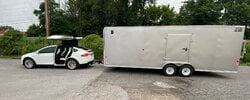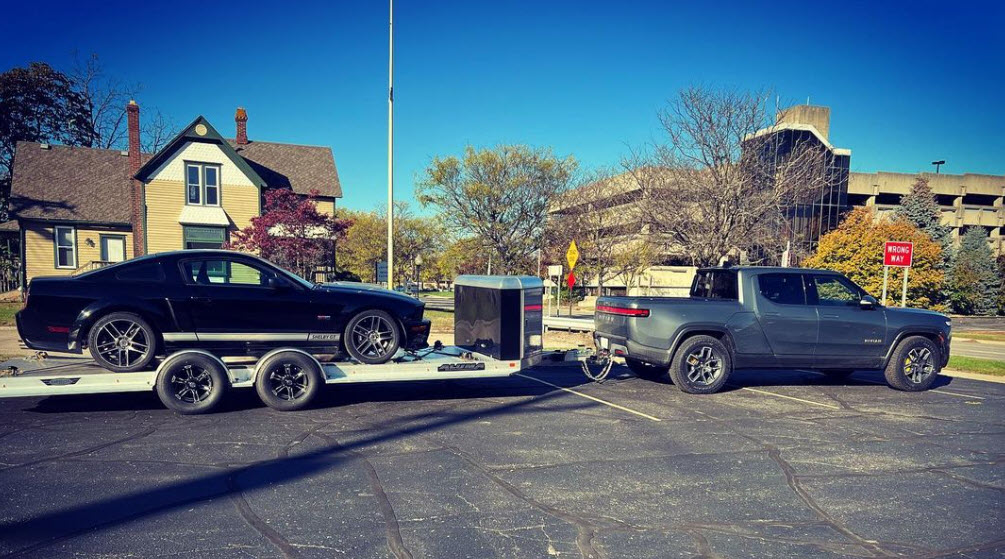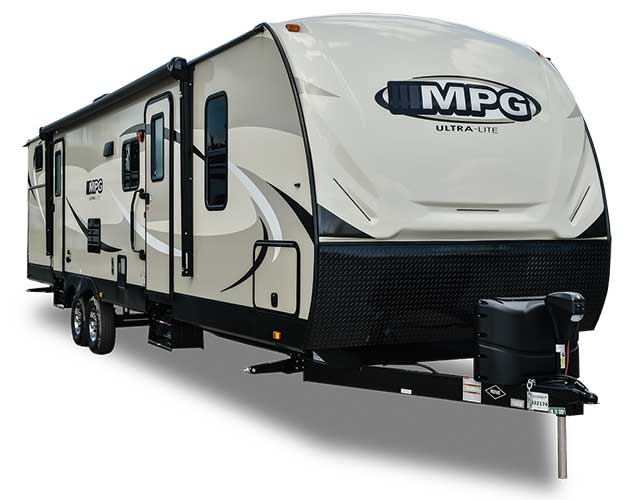So the goal is extended range while towing, and basically comes down to either of two methods. Both would involve extra battery storage (weight) in the trailer, so that is not a difference. The difference would be motors in the trailer or not? One seems to create more complex problems that would need to be solved and would be more difficult.
1. With motors:
For one thing, this is entirely extra weight and cost that wouldn't need to be there in the other solution. Also, from the added dangerous problem of trailer pushing the car that we've been mentioning, this is a very complex software control problem to solve. It would need the right kind of sensors in the right places to detect and match motor speed and responses, etc. etc. and it's a system that has never existed before, so would be a pretty new kind of design problem.
2. Without motors:
The vehicle already has motors and can pull. The problem to be solved here is just a power routing issue to figure out how to transfer energy through some kind of tethering cable from the trailer to the car while it's in motion. That seems to me a simpler, faster, and cheaper thing to figure out.
1. With motors:
For one thing, this is entirely extra weight and cost that wouldn't need to be there in the other solution. Also, from the added dangerous problem of trailer pushing the car that we've been mentioning, this is a very complex software control problem to solve. It would need the right kind of sensors in the right places to detect and match motor speed and responses, etc. etc. and it's a system that has never existed before, so would be a pretty new kind of design problem.
2. Without motors:
The vehicle already has motors and can pull. The problem to be solved here is just a power routing issue to figure out how to transfer energy through some kind of tethering cable from the trailer to the car while it's in motion. That seems to me a simpler, faster, and cheaper thing to figure out.






